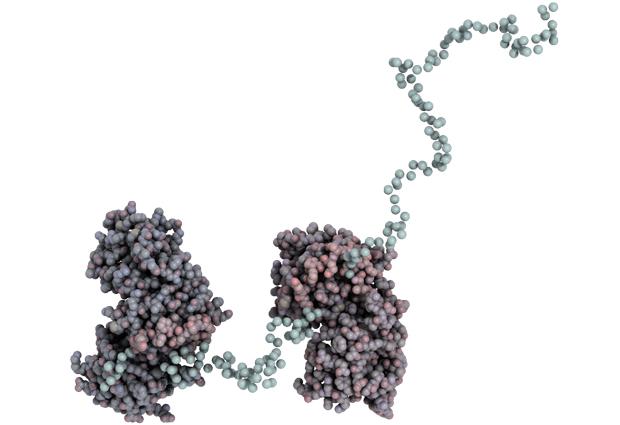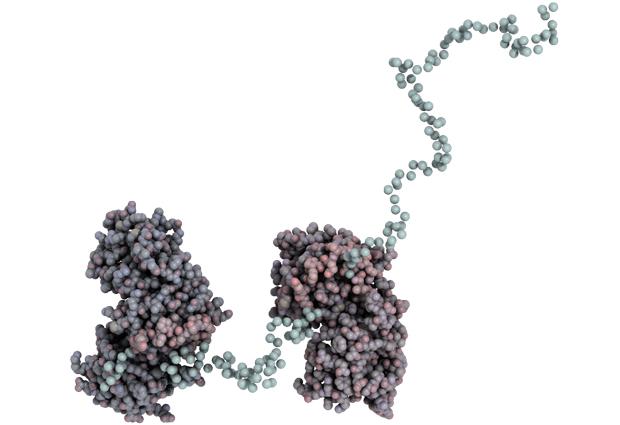
Credit: Matthew Bowler/EMBL
The parasite Toxoplasma gondii is a silent success. It infects up to 95% of people in many regions of the world, and most of them never know it, due to the parasite's artful manipulation of its host's immune response. Toxoplasma keeps the immune response low enough so that it can thrive, but high enough so that its human hosts generally live healthy lives and can incubate parasites. Scientists at EMBL and the Institute for Advanced Biosciences (IAB, an INSERM – CNRS – Université Grenoble-Alpes research centre) have uncovered one of the ways it maintains this balance, in a paper published today in Structure.
"The parasite rewires the host's inflammatory response," says Matthew Bowler, who led the research at EMBL. "It completely subverts the chain reaction that would normally trigger our body's defenses."
When a cell in your body detects a parasite, it sets off a chain reaction. Inside that cell, a series of molecules activate each other until a protein called p38α is activated and moves into the cell's nucleus. There, it turns on the genes that trigger the inflammatory response. Among other things, the purpose of that response is to eliminate the pathogen. One would expect parasites like Toxoplasma to want to subdue that response, but Mohamed-Ali Hakimi and colleagues at IAB discovered a few years ago that Toxoplasma secretes a protein, GRA24, which does just the opposite: it activates and controls our inflammatory response.
Bowler and Hakimi discovered that GRA24 bypasses the cell's chain reaction, activating p38α directly, and pulling it into the nucleus to turn on inflammatory response genes. Using a combination of techniques, they found that the Toxoplasma protein attaches itself much more strongly to p38α than the cell's own proteins do. So by producing a protein that binds directly, and very tightly, to p38α, Toxoplasma controls the level of the inflammatory response and sustains it by making it inaccessible to the proteins that would usually turn it off. This is why Toxoplasma isn't considered a serious health threat except for pregnant women and people with compromised immune systems.
This research has generated a new way to assess the efficacy of anti-inflammatory drugs, many of which are designed to block p38α. So far it has been difficult to assess how effective they are, because scientists haven't had a good way to produce an active form of p38α in the lab. In producing GRA24 bound to p38α, Bowler, Hakimi and colleagues – with the help of EMBL's Protein Expression and Purification Core Facility – created just that. The tight interaction with the parasite protein keeps p38α in its active state, so researchers can now subject it to the drugs they'd like to test, and evaluate how well they block p38α's active site, which the Toxoplasma protein doesn't interfere with.
###
Media Contact
Sonia Furtado Neves
[email protected]
@EMBLorg
http://www.embl.org
############
Story Source: Materials provided by Scienmag





